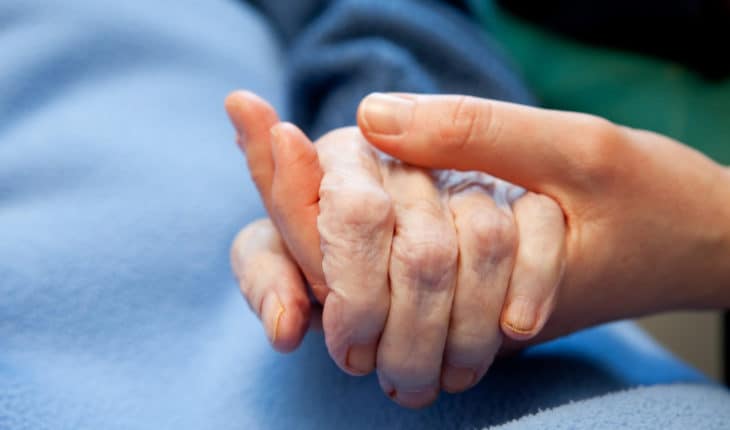People are living longer, and families are growing increasingly responsible for the care of elderly relatives. There are also home carers, foster carers, professional carers and those working in care homes.
Carers do essential work looking after the more vulnerable population with physical and learning disabilities.
Many people don’t realise they count as a carer. Being a carer does not necessarily mean you are caring for someone twenty-four hours a day. You may be doing less hours but still being of critical support to someone. To find out if you meet the criteria of a carer and qualify for the support they receive read our “Support for carers” article
How often do accidents occur
Carers have a wide range of responsibilities and keeping those in their care safe is paramount. No matter how vigilant they are, accidents and medical emergencies do happen – and that is why first aid training is vital.
Accident statistics from RoSPA 2020:
- The home is the most common location for an accident to happen
- Every year across the UK, there are approximately 6,000 deaths as a result of home accidents
- Children under the age of five years and people in later life (those over the age of 65, and particularly those over 75) are most likely to have an accident at home
- Falls are the most common accidents and can cause serious injury at any time of life, but the risk increases with age
- Surprisingly, more accidents happen in the lounge/living room than anywhere else in the home. However, the most serious accidents happen in the kitchen and on the stairs.
Prompt and appropriate first aid, saves lives, prevents minor injuries becoming major ones and can reduce pain and scarring.
Ensuring carers are confident and competent coping in a medical emergency is vital for the wellbeing of the person they care for.

If you would like a copy of this poster please email
Choking:
If someone is choking you must stay calm
- Encourage the child or adult to cough
- If this doesn’t work bend them forward, supporting them on their chest with the other hand and use the flat of your hand to give a sharp back blow between the shoulder blades. Check to see if the blockage has cleared before giving another blow
- If the blockage hasn’t cleared after five blows, begin abdominal thrusts. Stand behind the person and place one hand in a fist between their belly button and their rib cage. Use the other hand to pull up and under in a J shaped motion, to dislodge the obstruction. Perform abdominal thrusts up to 5 times, checking each time to see if the obstruction has cleared
- If the person is still choking, call 999 and alternate 5 back blows and 5 abdominal thrusts until emergency help arrives
Click here to find out how to help a choking baby

Bleeding:
If someone is bleeding you should sit or lie them down and elevate the bleeding area above the level of the heart to slow down the bleeding. Click here to read more about major bleeds and shock

Anaphylaxis:
In the UK, an estimated 2 million people are living with a diagnosed food allergy. Anaphylaxis can proceed rapidly and failure to administer adrenaline promptly has been associated with fatalities, therefore it’s essential to know the signs and how to respond in an emergency. To find out why anaphylaxis occurs and be ready to help, click here

If you would like a copy of this poster please email
Seizures:
Seizures can be alarming. One in twenty people will have a seizure at some point in their lives, so it’s vital to know what to do to help. For a complete guide on seizures, convulsions and epilepsy click here.

If you would like a copy of this poster please email
Falls:

For a copy of this poster please email
If someone becomes unconscious or won’t stop crying, complains of head or neck pain and isn’t walking normally following a head injury you should call 999 or 112 immediately.
If they are behaving normally, you should:
- Apply a wrapped ice pack or instant cold pack to the injured area for 10 minutes.
- Observe the person carefully for the next 24 hours. If you notice any worrying signs get medical help immediately.
- If the incident has occurred close to bedtime and the person falls asleep soon afterwards, check in continually to look for anything unusual (twitching limbs or disturbances in colour or breathing)
It is perfectly ok to go to sleep (so long as they are not showing any signs of concussion and there is no risk of confusing tiredness with losing consciousness) – there is no need to stay awake following a head injury.

If you would like a copy of this poster please email
First aid courses with First Aid for Life
First Aid for Life specialise in providing exemplary first aid training to comply with the mandatory first aid training requirements for Home Carers, Foster Carers and Care Homes. Our online First Aid course for Carers cover all the necessary aspects of the Care Act and will equip all Carers with the skills and confidence to help the specific age groups they are responsible for, in a medical emergency. They also offer bespoke courses for those working in particular settings, with specific sets of needs. The courses are designed to teach you all you need to know in order to help someone experiencing a medical emergency.
“The team at First Aid for Life tailored the course to meet our specific needs of dealing with the complexities of caring for an elderly woman with Parkinsons. They came to our home to perform the training so that we didn’t need to worry about using an agency to care for nanna. Would recommend this service to anyone”
If you are trusting the safety and wellbeing of your child or parent with someone else, please make sure that they have had thorough training and have the skills and knowledge to confidently help in an emergency. First Aid for Life training is different from other providers: our trainers are highly experienced health and emergency services professionals. Courses are held in small groups and we only award our certificates once we have ensured that each individual has fully understood everything and would be competent and confident in an emergency situation.
We care every bit as much as you do about the well-being of your loved one.
Further reading
Slips, Trips and Fractured Hips is an award-winning Amazon bestseller, written for people caring for older friends and relatives; children caring for elderly parents, for spouses, for older people wanting to keep themselves that bit safer and for anyone working with or caring for older people. It is designed to help you take measures to prevent life-threatening injuries and help you plan, prepare and avoid mishap.
Click here to buy your copy
- What is a seizure? - 13th March 2025
- Febrile Convulsions and Seizures in Children - 13th March 2025
- Why women are less likely to receive CPR or survive cardiac arrest - 6th March 2025






